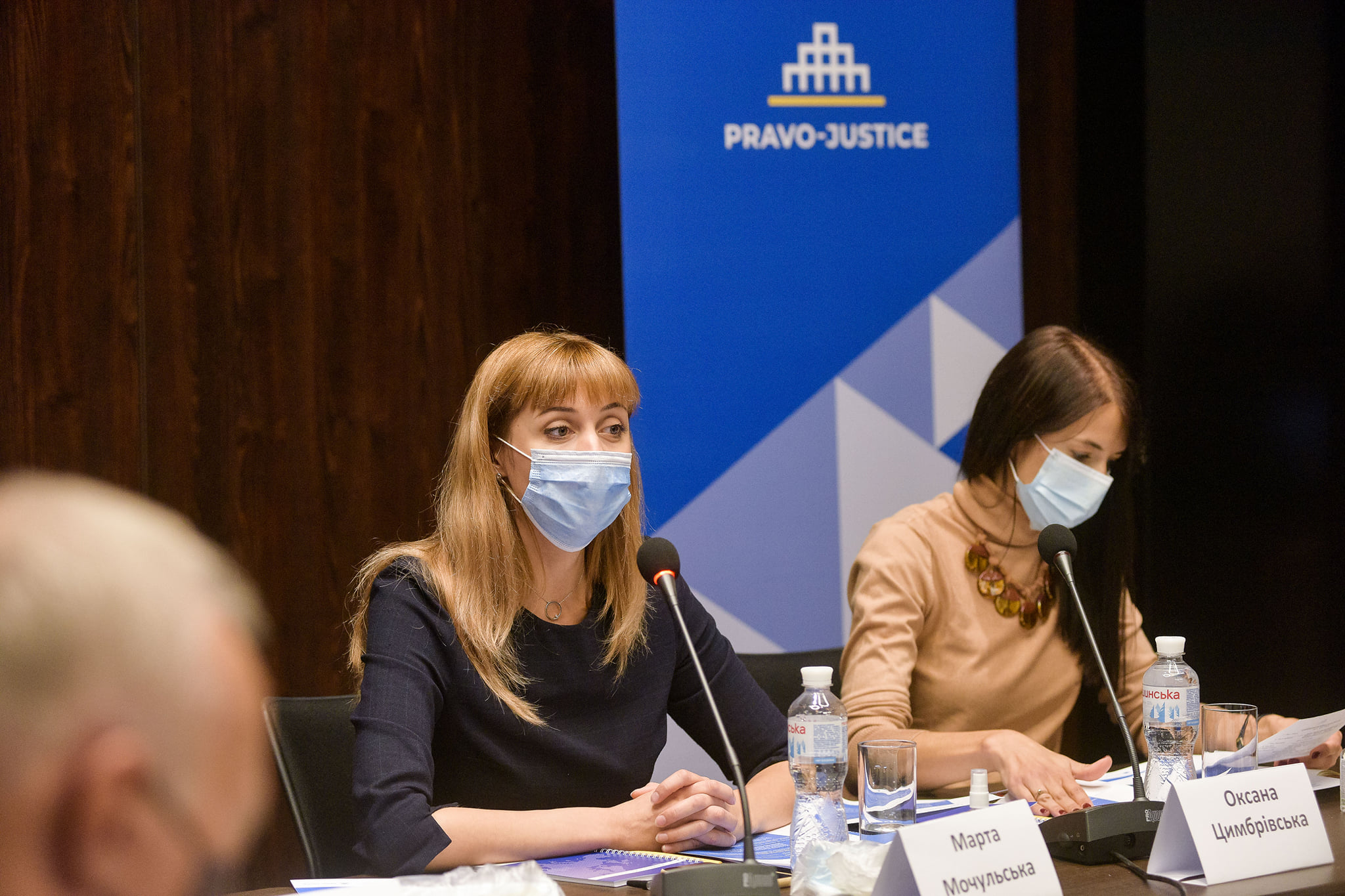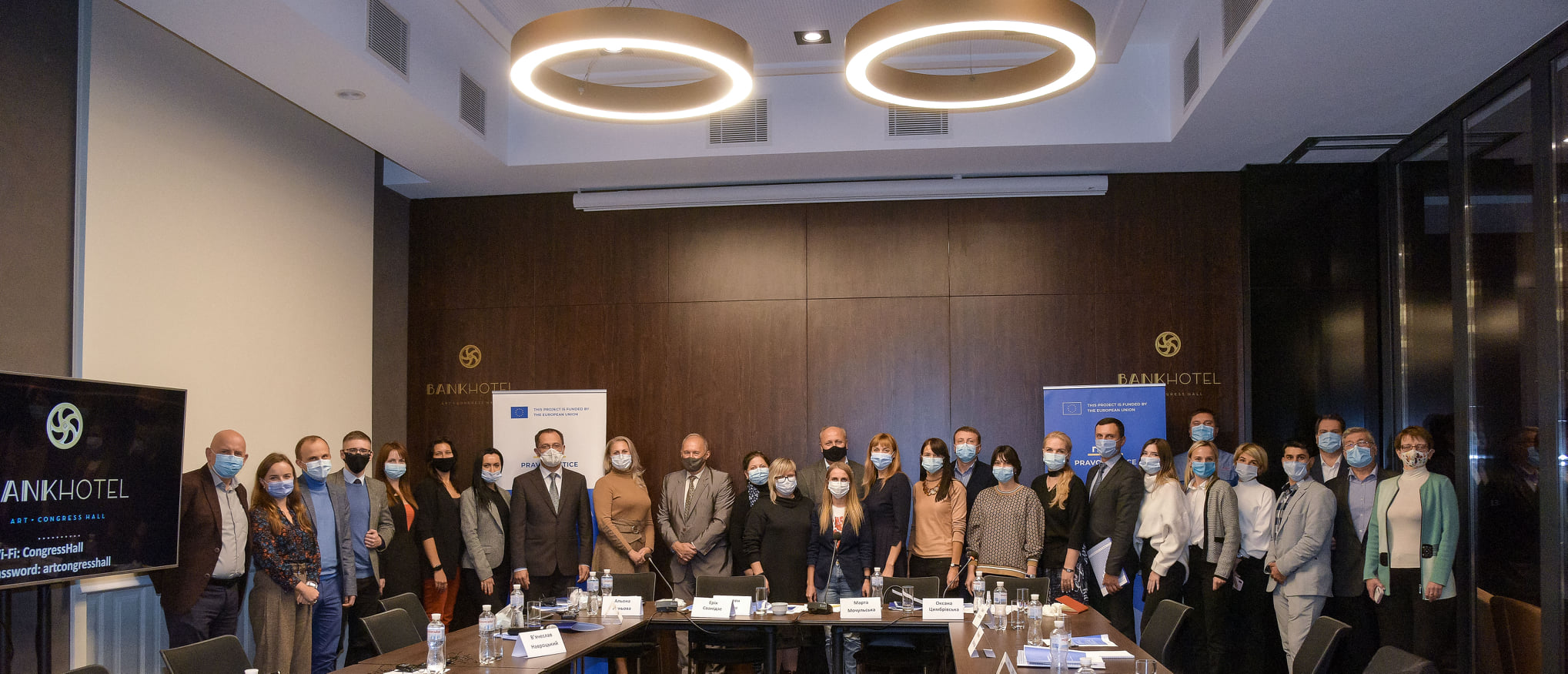The floor is given to regions: Lviv Regional Justice Reform Council Coordinator on priorities for action

Marta Mochulska, Lviv Regional Justice Reform Council Coordinator, Ph. D. in Law, Deputy Dean of Law Department, Ivan Franko National University of Lviv.
Ms. Marta has recently started her activity in the capacity of the Council, but she has already managed to establish its effective functioning in Lviv region. Lviv Regional Justice Reform Council focuses on administration of justice, free legal aid, bar activity, notaries' services and legal business. Of course, with the introduction of quarantine in Ukraine, it was necessary to change formats, adjust to current requirements. We spoke with Ms. Martha and offer you a brief summary of our conversation.
How do your colleagues perceive the establishment and activities of the Council in Lviv region?
The establishment of the Council generated interest in legal community of the region. In course of our work, we sought to involve representatives of various legal professions in the Council: representatives of the judiciary, lawyers, private enforcement officers, the academia and justice sector staff. We succeeded in it. It is they who disseminate information about the activities of the Council among their colleagues.
During extended meetings of the Council with the participation of the main stakeholders on certain topics, such as mediators, state registrars, representatives of free legal aid systems we see a sincere interest in the work of the Council and desire to take part in our activities. Active participation of lawyers from various fields testifies to the attention and growing interest in the activities of the Council.
What is the most difficult part of your work as Lviv Regional Justice Reform Council Coordinator? What difficulties did you encounter in the process?
The coordinator of the Council is a strategist who shapes the general direction of the Council's development, communicates with all members of the Council, formulates the topics of its meetings, works on involving stakeholders in the activities. I understand that the effectiveness of the Council largely depends on the organization of its activities. The most difficult thing for me as a coordinator was to keep the Council effective during quarantine. We are now to some extent limited in our activities, but this should not affect our performance.

What tools are you lacking to make the Council's activities more efficient?
There are plenty of tools for the Council to work effectively. EU Project Pravo-Justice gives the Council the opportunity to act effectively, to take action by involving international and national experts. Nevertheless, I understand that it is necessary to work on communication in order to bring across the position of Lviv region on certain legal issues to the central authorities more effectively. It is also worth focusing on legal awareness activities of the Council in the region, to disseminate information about the Council not only among the legal community. Therefore, additional communication and media tools will improve the Council's results.
How can the Council contribute to improving remote communication with notaries' services users?
The Council can influence certain processes in the field of notaries by discussing challenges in this area, working out possible ways to solve them and communicating this information to the main stakeholders. The first step to improving communication between notaries and users of their services is to find out and discuss in an expert environment the problems that arise. The result of such a discussion should be: how to act, what to change. We are already working on arranging such discussions in Lviv region. It is important to communicate such developments to stakeholders.
Are you ready to become a mediator, an organizer of a platform for developing common frameworks for solving typical difficulties in communication between lawyers and courts?
Effective justice is impossible without professional communication between lawyers and judges. Lviv Council has already to a large extent become a platform for them to exchange views as it includes representatives of the judiciary and the legal community. Many events were devoted to specific issues of justice. In particular, we examined application of the recommendations of the Council of Judges of Ukraine on special working hours arrangements in courts, taking into account the number of persons tested positive for COVID-19 in a particular court. In addition, there was an active discussion as to violation of lawyers' rights in case of refusal to participate in court hearings for reasons of personal safety. This was the case when lawyers belonged to risk groups for COVID-19. We have directed these issues and our proposals how to solve them to the central authorities. However, the discussion itself enabled lawyers and judges to reach an agreement and understand each other. We use every opportunity to improve the communication of legal professionals in the region, including between lawyers and judges.
What's next? What are the priorities for action for the Council?
The upcoming activities are largely related to developments in the country, such as judicial reform, adoption of certain laws, or other processes in the field of law. The Council is flexible and responds quickly to legal challenges, which I consider to be our strength. Among the priorities I can highlight the expansion of the Council by including active representatives of legal professions who are not yet represented in the Council. Despite quarantine, we cannot take down a notch, so another priority is to maintain the effectiveness of the Council in times of quarantine restrictions. And, of course, improving communication between the Council and the central authorities, working on the Council's legal awareness activities.